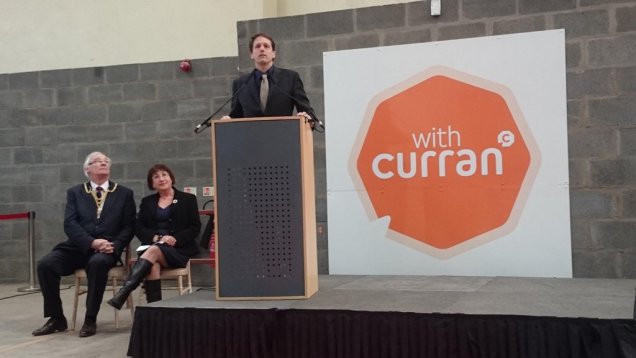
“Investments should be made in the bioeconomy because it is the future. Although it is still in the early years of development, there is little doubt that this area will become important.” To say it, in this exclusive interview with Il Bioeconomista, is Christian Kemp Griffin, executive director and Ceo of CelluComp, a dynamic material science company based in Scotland that develops high performance products based on sustainable resources. With Kemp-Griffin we talk about CelluComp and the development of the bioeconomy.
Cellucomp is considered one of the most innovative European small enterprises in the field of bioeconomy. What exactly is your business?
Our business is making our product, Curran, and selling it. Curran is a microfibrilated product derived from waste streams of root vegetables. It has very interesting properties to increase mechanical properties of other materials and give good rheology (or thickening).
Why should an investor invest in the bioeconomy?
Investments should be made in this sector because it is the future. Although it is still in the early years of development, there is little doubt that this area will become important. Deciding which company to invest in is important but the winning companies will be very successful.
Scotland has set the industrial biotechnology and the bioeconomy at the center of its development plan for the coming decades. What are the strengths of Scotland’s bio-economy and what are the areas for improvement ?
I’m not really in a position to speak on behalf of the whole Scottish industry, as I don’t have a total view of all the projects. However, I do know that the whisky industry, and marine-related products are strong in Scotland. There is a strong chemical sector, as well. A big part of the strength in the bio-industry is the desire to make something of it. When you set a goal and invest behind it, things happen.
And the strengths and weaknesses of the European Union?
Again, hard for me to comment on that. However, the EU has a strong agricultural sector and good education and desire to see the bioeconomy grow. Investments such as the BBI (private/public partnership) are encouraging. The chemical sector is also very strong. Some of the downsides are the complications of running streamlined projects across country boarders but I would say it is manageable.
Scotland in the referendum on Brexit voted in favor of Europe. What effect will have the Brexit on the bioeconomy in the UK , from your point of view?
There may be a drop in R&D funding overall in the medium term but I don’t think it will stop the train in any way.
Do you believe that Scotland could eventually remain in the Union, as announced by your prime minister?
Possible. We’ll have to wait and see.
Author
Mario Bonaccorso
Source
Supplier
Share
Renewable Carbon News – Daily Newsletter
Subscribe to our daily email newsletter – the world's leading newsletter on renewable materials and chemicals










